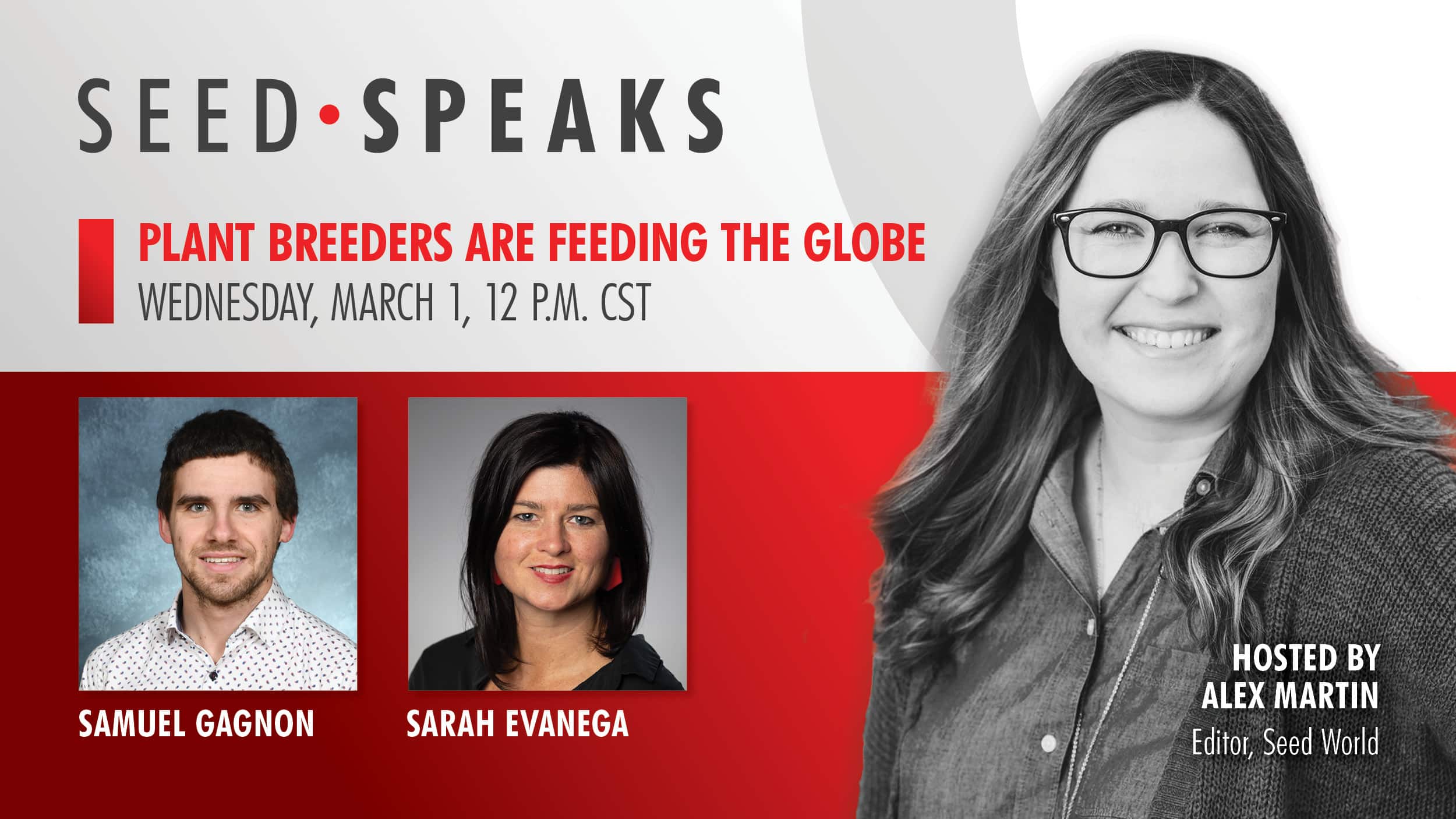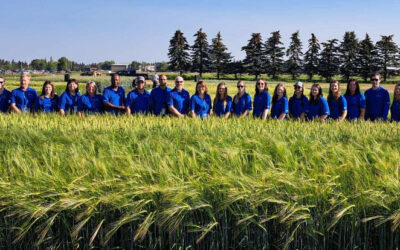There’s been a huge discussion around the idea that the global population is growing rapidly. If you’ve been in the seed sector — or even agriculture as a whole — for a few minutes, you’ll probably hear the term “Nine billion by 2050” tossed around as the predicted population within the next 27 years. In fact, on Nov. 15, 2022, the United Nations declared the day the Day of Eight Billion — officially the day when the Earth’s population reached and exceeded eight billion people.
The constant challenge presented to the seed sector, though, is how to feed that population. Plant breeders globally are attempting to solve this ever-increasing problem. How do you feed that many people with limited crop land — especially when it’s reported by organizations such as Action Against Hunger that 828 million people are facing hunger today?
It’s time to innovate.
On March 1 at 12 p.m. CST, Seed Speaks will host two panelists to discuss more of how companies and plant breeders alike are looking to innovate to feed the globe. Joining us are:
Sarah Evanega, lead of stakeholder communications at Pairwise — Prior to joining Pairwise, Evanega was a professor at the Boyce Thompson Institute for Plant Research (BTI) on the campus of Cornell University. At BTI, she worked at the nexus of plant science and the societal issues that affect the plant science research enabling environment. There, she served as the founding director of the Alliance for Science — a global communications effort that aims to improve science literacy and science-informed policy making across a range of science issues, including agricultural biotechnology. For 12 years, Evanega was based in International Programs in the college of Agriculture and Life Science (IP-CALS) at Cornell. At IP-CALS, she was instrumental in launching the CALS initiative, AWARE (Advancing Women in Agriculture through Research and Education) which promotes women in agriculture. Evanega is the 2021 Borlaug CAST Communication Award winner and a senior fellow at the Breakthrough Institute. In 2022 she received the Mary Clutter Leadership in Science Public Service Award from the American Society of Plant Biologists. Evanega received her PhD in Plant Biology from Cornell University in 2009 in Plant Biology. She completed a BA in Biology at Reed College in Portland Oregon.
Samuel Gagnon, leading breeder with Progest 2001 and a PhD student at Laval University — In 2019, Gagnon completed his bachelor’s in agronomy at Laval University in vegetal production. He then transferred to a master’s in vegetal biology at the same university to work on the development of a dihaploid potato germplasm from flavorful tetraploid cultivars. Gagnon’s now pursuing the same project during his PhD to identify specific genes involved in sexual reproduction to facilitate diploid potato breeding. During his studies, he has also worked as the leading breeder in a private company, Progest 2001, which operates in various aspects of potato research, such as storage, fertilization, breeding and phyto protection.
Make sure to tune in at:
Related Articles
Breeding Crops to be Less Allergenic
Wild Relatives are Plant Breeders Insurance Policy for Food Security





